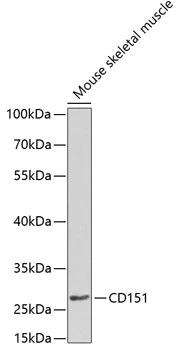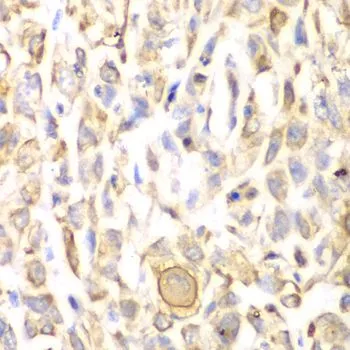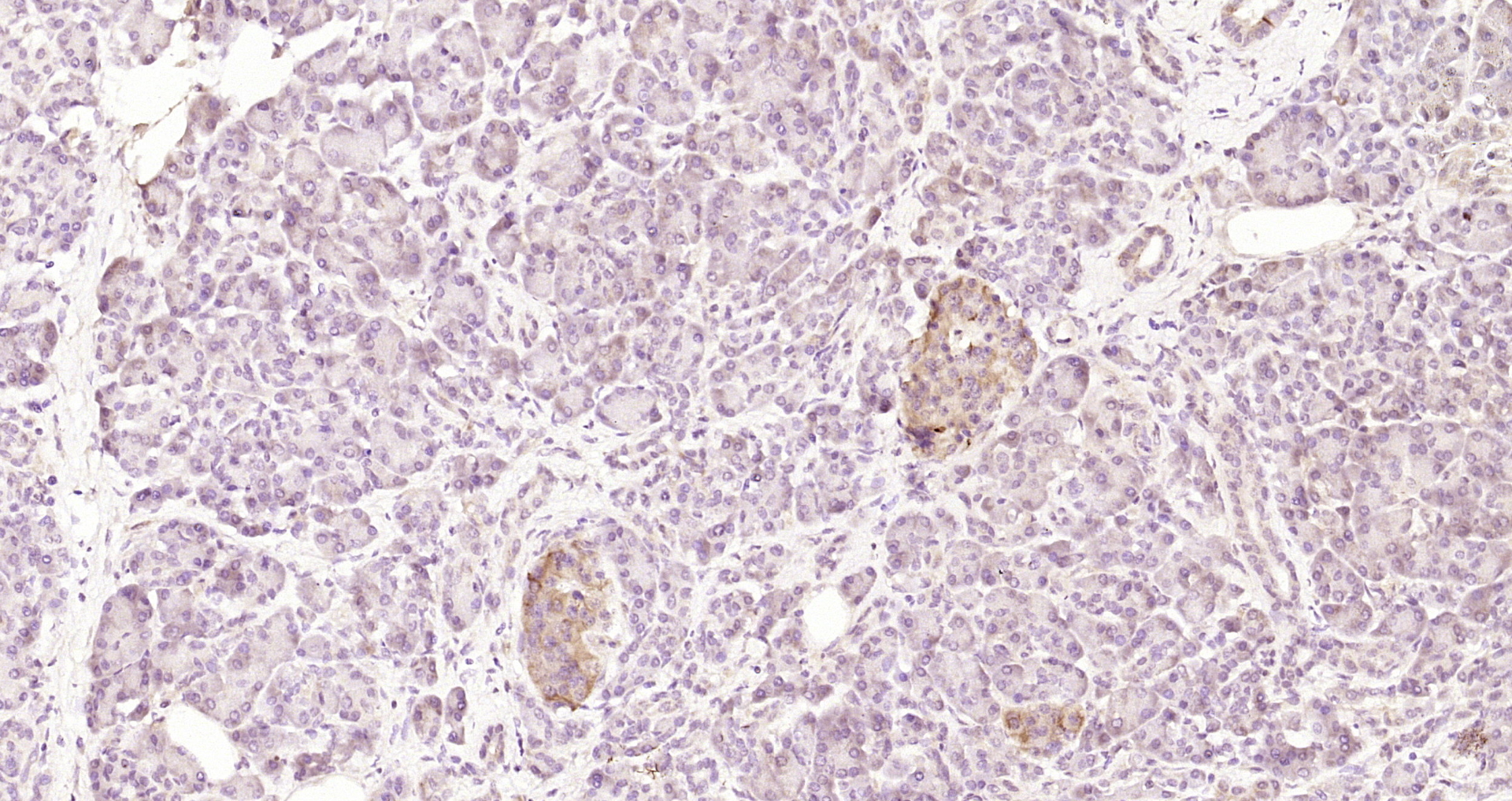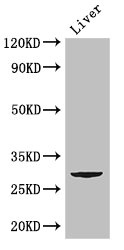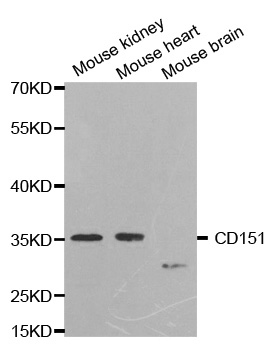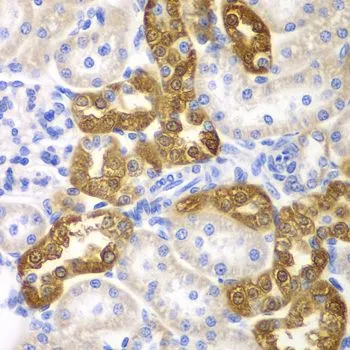
IHC-P analysis of rat kidney tissue using GTX53914 CD151 antibody. Dilution : 1:200
CD151 antibody
GTX53914
ApplicationsWestern Blot, ImmunoHistoChemistry, ImmunoHistoChemistry Paraffin
Product group Antibodies
ReactivityHuman, Mouse, Rat
TargetCD151
Overview
- SupplierGeneTex
- Product NameCD151 antibody
- Delivery Days Customer7
- Application Supplier NoteWB: 1:500 - 1:2000. IHC-P: 1:50 - 1:200. *Optimal dilutions/concentrations should be determined by the researcher.Not tested in other applications.
- ApplicationsWestern Blot, ImmunoHistoChemistry, ImmunoHistoChemistry Paraffin
- CertificationResearch Use Only
- ClonalityPolyclonal
- ConjugateUnconjugated
- Gene ID977
- Target nameCD151
- Target descriptionCD151 molecule (Raph blood group)
- Target synonymsEBS7, GP27, MER2, PETA-3, RAPH, SFA1, TSPAN24, CD151 antigen, CD151 antigen (Raph blood group), hemidesmosomal tetraspanin CD151, membrane glycoprotein SFA-1, platelet surface glycoprotein gp27, platelet-endothelial cell tetraspan antigen 3, platelet-endothelial tetraspan antigen 3, tetraspanin-24, tspan-24
- HostRabbit
- IsotypeIgG
- Protein IDP48509
- Protein NameCD151 antigen
- Scientific DescriptionThe protein encoded by this gene is a member of the transmembrane 4 superfamily, also known as the tetraspanin family. Most of these members are cell-surface proteins that are characterized by the presence of four hydrophobic domains. The proteins mediate signal transduction events that play a role in the regulation of cell development, activation, growth and motility. This encoded protein is a cell surface glycoprotein that is known to complex with integrins and other transmembrane 4 superfamily proteins. It is involved in cellular processes including cell adhesion and may regulate integrin trafficking and/or function. This protein enhances cell motility, invasion and metastasis of cancer cells. Multiple alternatively spliced transcript variants that encode the same protein have been described for this gene. [provided by RefSeq, Jul 2008]
- ReactivityHuman, Mouse, Rat
- Storage Instruction-20°C or -80°C,2°C to 8°C
- UNSPSC12352203

